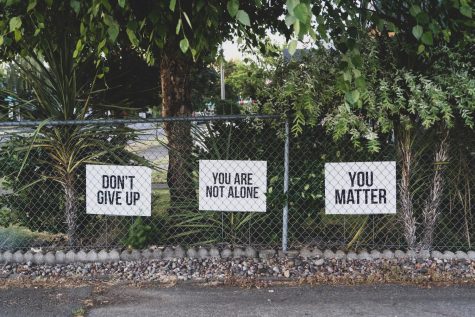Suicide Prevention
December 8, 2022
Suicide is to take your own life by self-inflicted injury. Non-fatal self-inflicted injury is more common, and not all self-inflicted injuries are suicide attempts. According to Florida department of health, in 2019, among Floridians there were 3,465 suicides and 12,514 hospitalizations for non-fatal self-inflicted injuries. Suicide affects all ages. According to Florida department of health, it is the second cause of death for people 10-34. The fourth cause for people ages 34-54, and the fifth cause for people 45-54. Some groups have more suicide attempt rates than others. They may vary by race/ethnicity/age, and other factors. The highest number of suicide rate are amongst American Indian/Alaska Native and non-Hispanic White populations. Young people who are a part of the LGBTQ2+ community have a higher chance than someone who will identify as straight. Suicide is a critical public health problem in the United States. Suicide is preventable, you may not even realize they are having these thought until they turn them into actions. Everyone can help prevent suicide by learning the warning signs, committing to social change, and promoting prevention and resilience.
According to Florida department of health, it is the second cause of death for people 10-34. The fourth cause for people ages 34-54, and the fifth cause for people 45-54. Some groups have more suicide attempt rates than others. They may vary by race/ethnicity/age, and other factors. The highest number of suicide rate are amongst American Indian/Alaska Native and non-Hispanic White populations. Young people who are a part of the LGBTQ2+ community have a higher chance than someone who will identify as straight. Suicide is a critical public health problem in the United States. Suicide is preventable, you may not even realize they are having these thought until they turn them into actions. Everyone can help prevent suicide by learning the warning signs, committing to social change, and promoting prevention and resilience.
Suicide is associated with several risks and protective factors. Suicide has no single determining cause, instead occurring in response to multiple biological, psychological, interpersonal, environmental, and societal influences that can induce in more suicidal ideations. A combination of situations could lead to someone considering suicide. These factors can apply to the possibility of suicide but may not be the direct cause. These factors can be history of depression and/or other mental health issues, hopelessness, substance abuse, certain health conditions, previous suicide attempts, violence victimization, genetic conditions, high conflict or violent relationships, sense of isolation, lack of support, finical/work stress, unsafe media portrayals of suicide, stigma associated with help-seeking and mental illness. There are many chances and steps communities can take that may help protect people from suicidal thoughts and behaviors. Research is needed to be identifying and understanding protective factors that help lessen risk factors. These protective factors can be coping, problem-solving skills, cultural beliefs, and religious beliefs, supportive relationships with care providers, limited access to lethal means.
For more resources or support call any of the following: the DCPS crisis hotline is 904-390-2535; the Suicide Prevention Lifeline at 1-800-273-8255 or in emergencies, dial 911; the National Suicide Prevention Hotline is 1-877-273-8255; the 2-1-1 United Way Resource Hotline; the DCPS Bully Hotline is 904-390-2255 or LGBTQ members can call 904-389-3857 which is the Jasmyn LGBT+ Organization.
